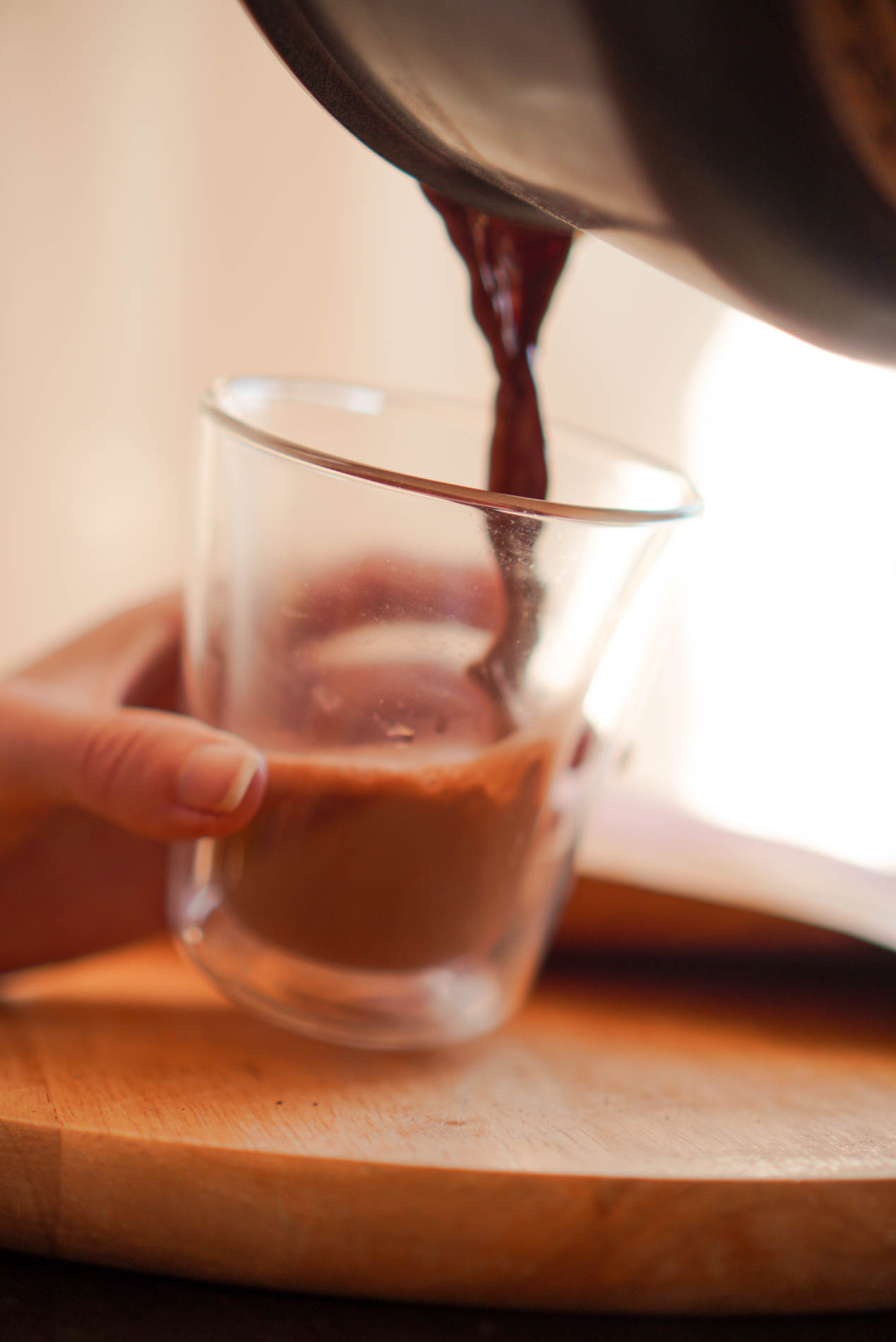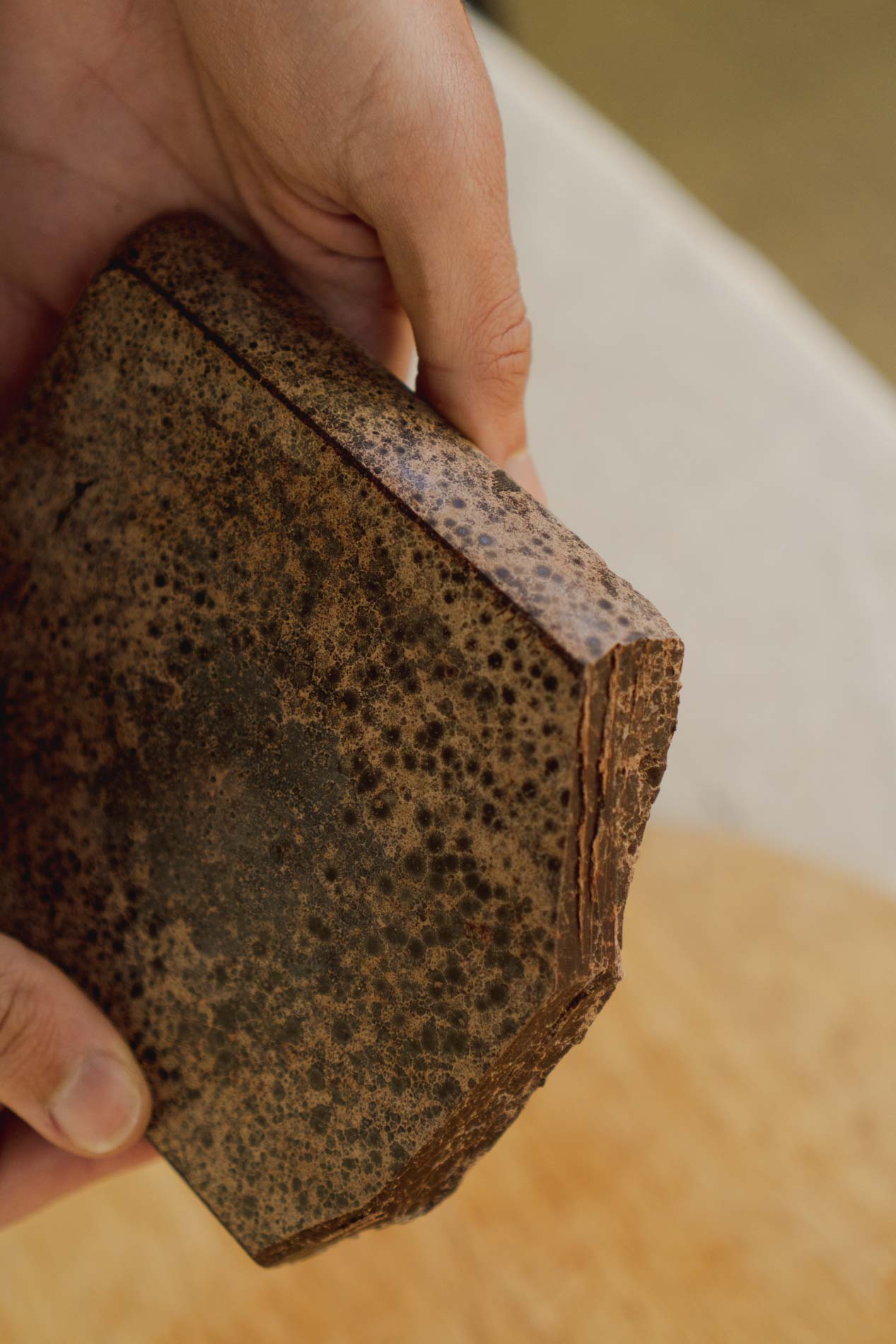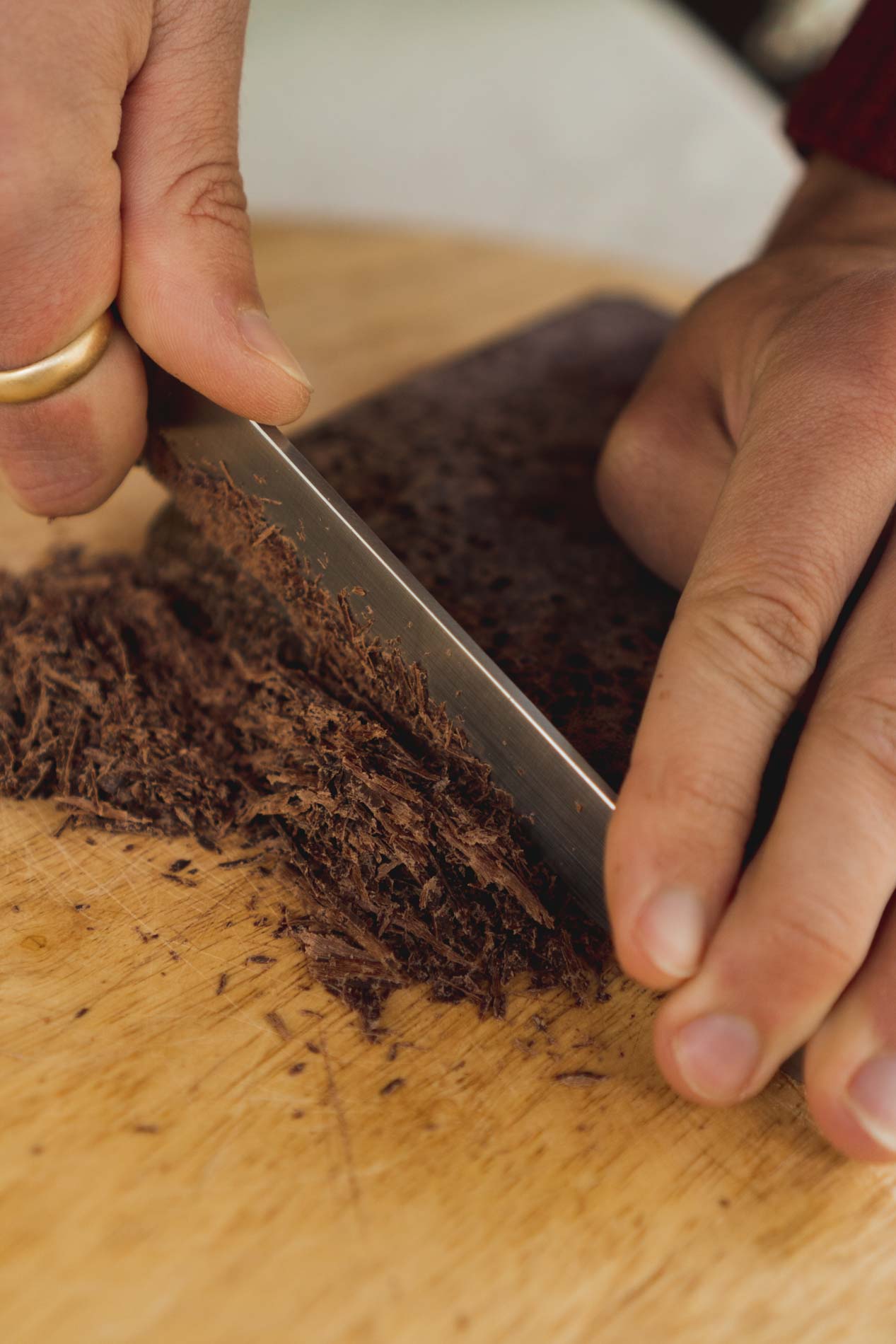ORIGIN CACAO AS AN
ALTERNATIVE TO
COFFE OR TEA
ORIGIN CACAO AS AN
ALTERNATIVE TO COFFEE OR TEA
CONTENTS


INTRODUCTION
Looking to reduce caffeine intake? Tired of the jittery highs and energy crashes of your usual cup of coffee or tea?
Cacao might just be the satisfying alternative you’ve been searching for.



Theobromine Over Caffeine: Sustainable Energy Without The Jitters
Unlike coffee or tea, cacao’s primary stimulant isn’t caffeine—it’s theobromine, a closely related alkaloid that offers a gentler, more sustained form of stimulation. While caffeine predominantly acts on the central nervous system, theobromine works on both the cardiovascular and central nervous systems. The result? Increased alertness and energy, without the spike-and-crash cycle (often responsible for addictive behavior towards coffee) or nervous overstimulation.
Now, let’s be clear: cacao does contain some caffeine. But it’s important to understand how differently the body responds to it compared to a straight intake of caffeine from coffee or tea.
It’s difficult to define exact caffeine levels in a typical serving of coffee or tea, as they vary depending on the type of beans or leaves and how they’re brewed. Similarly, precise data on the caffeine and theobromine content in Origin Cacao remains limited, as research in this area is still emerging.
That said, based on figures from sources like Soma Cacao and Ora Cacao, a standard serving of origin cacao contains approximately 30–35 mg of caffeine and 200-250mg of theobromine. In contrast, commonly cited averages place coffee, tea, or matcha between 80–120 mg of caffeine per serving.
While cacao still contains a notable amount of caffeine, it behaves differently in the body.
Cacao’s caffeine is absorbed more slowly due to its natural fat content and the entourage effect of other bioactive compounds—particularly theobromine, which far outweighs caffeine.
This unique ratio is key to cacao’s distinct physiological effect. Theobromine promotes steady energy, mental clarity, and emotional openness—without the anxiety, spikes, or crashes often associated with caffeine. It also has a longer half-life and works primarily as a vasodilator and smooth muscle relaxant, while caffeine acts more directly on the central nervous system and often triggers vasoconstriction.
Many users describe the experience as gentler, longer-lasting, and more grounding.
Though more research is needed, early findings and user reports strongly suggest that cacao offers a smoother alternative to traditional stimulants, with benefits that extend beyond simple wakefulness.
A Natural Cocktail for Mood and Focus
Beyond theobromine, cacao is rich in bioactive compounds such as:
- Flavanols, which enhance blood flow and support cardiovascular health.
- Anandamide, often called the “bliss molecule,” which interacts with our endocannabinoid system to support feelings of calm and well-being.
- Phenylethylamine (PEA), a neuromodulator associated with increased focus, mental clarity, and even feelings of love.
- Tryptophan, a precursor to serotonin, promoting emotional balance and better sleep cycles.
These compounds collectively support reduced stress, increased mental clarity, and a steady uplift in energy, making cacao a viable companion for creative tasks, deep work, grounded conversations or mindful rituals.
While holding regular tasting sessions, Cacao Bars and working with Origin Cacao brands, we could gather feedbacks from daily coffee drinkers saying that cacao makes them feel genuinely good, while coffee feels more like a quick fix—leaving them wired, overstimulated, or out of sync. Many mentioned that coffee can even amplify mild anxiety, while cacao seems to offer a smoother, more comforting experience.
For more discussion on cacao’s effects, see Health Benefits & Effects.




Nutritional Benefits That Support Your Body
Cacao isn’t just a stimulant—it’s also a nourishing superfood. It’s packed with:
- Magnesium – supports muscle function, relaxation, and cognitive processes.
- Iron – vital for oxygen transport and energy production.
- Healthy fats – promote satiety and sustained energy.
- Polyphenols – powerful antioxidants that reduce inflammation and oxidative stress.
According to a recent analysis on the Health Benefits of Bioactive Compounds from Cocoa1, daily intake of minimally processed cacao may contribute to cardiovascular health, metabolic regulation, and neuroprotection.
For more discussion on cacao’s nutritional benefits, see Health Benefits & Effects.
A Daily Ritual That Nurtures
Swapping your morning coffee or tea for cacao is more than a substitution—it’s a reorientation of rhythm and intention. Whether you’re setting the tone for a mindful morning or entering a state of focused flow, cacao provides not just stimulation, but nourishment.
Its preparation encourages slowness, its flavor invites presence, and its effects are as much emotional as they are physical. This is not just about reducing caffeine—it’s about inviting in a healthier, more holistic way of energizing.
And you don’t even need to worry about missing the taste of your morning brew. Discovering the different flavor profiles of cacao is an exploration in itself. Whether you like an invigorating dark roast coffee, the complex and fruity notes of an Ethiopian arabica or the floral notes of an Oolong tea, there’s enough diversity in origin cacao’s genetics, terroirs, and making processes to fill up the blank.
Head to our Cacao Profiles if you want to start your exploration.

SOURCES
REFERENCES
- Shahanas, E., S. T. Panjikkaran, E. R. Aneena, C. L. Sharon, and P. R. Remya. 2019. “Health Benefits of Bioactive Compounds from Cocoa (Theobroma cacao).” Agri Revs 40, no. 2: 143–49. https://www.researchgate.net/publication/335487580.
BACKGROUND MATERIAL
• Edo, G., et al. “Review on the Biological and Bioactive Components of Cocoa (Theobroma cacao).” Insight on Food, Health and Nutrition. https://doi.org/10.53365/nrfhh/174302
• Tuenter, E., K. Foubert, and L. Pieters. 2018. “Mood Components in Cocoa and Chocolate: The Mood Pyramid.” Planta Medica 84, no. 12/13: 839–44. https://doi.org/10.1055/a-0588-5534.
• Patchett, Marcos. The Secret Life of Chocolate. London: Aeon Books, 2020. ISBN 978‑1‑911597‑06‑3.








